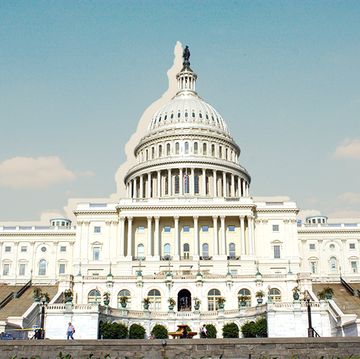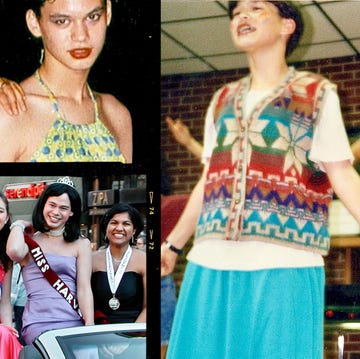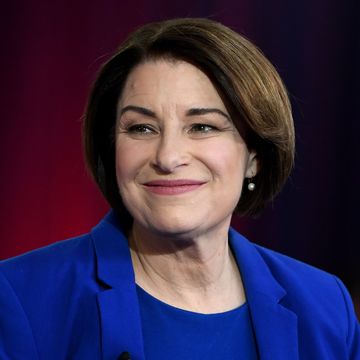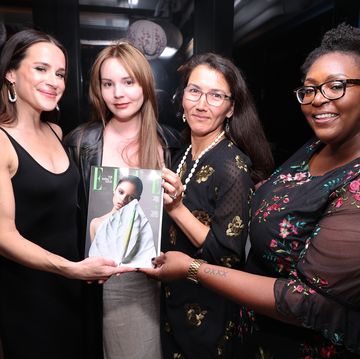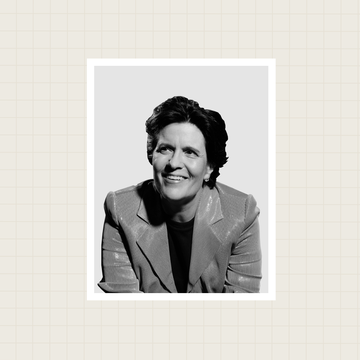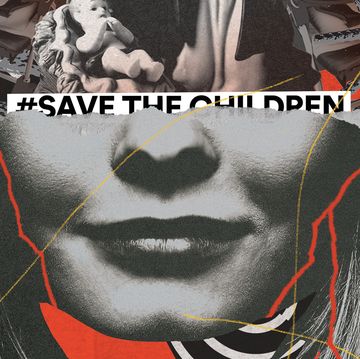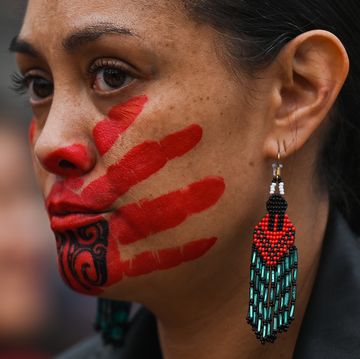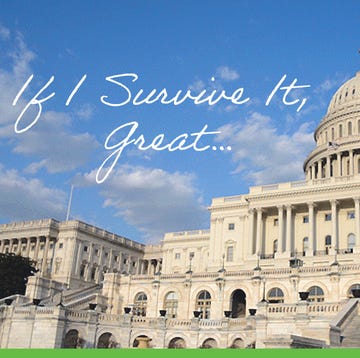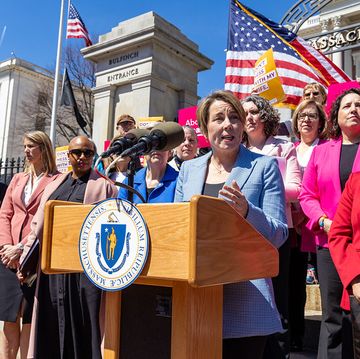Right before the 2020 election, Sen. Gary Peters took a risk. At the time, he was facing a tough re-election race in Michigan, which would help decide whether Democrats would clinch the Senate majority. But he was also concerned about then-Supreme Court nominee Amy Coney Barrett, and what her addition to the bench could mean for the future of abortion rights. He decided it was time to tell his own story, and he became the first sitting senator to share his personal experience with abortion.
In the 1980s, Peters’ then-wife was pregnant with their second child when her water broke during her fourth month. With no way for the fetus to survive, their doctor—who recommended an abortion but was unable to offer the procedure due to hospital policy—told the couple to wait at home for a natural miscarriage. After two nights without miscarrying, and with Peters’ then-wife’s life at risk, the doctor appealed to the hospital board but was denied. He urged the Peters to find somewhere else to go, and the two rushed to get an emergency abortion at another hospital where they knew the chief administrator. While sharing his story publicly for the first time, Peters told ELLE: “It’s important for folks to understand that these things happen to folks every day.”
Now, the concerns Peters had two years ago have come to fruition. In June, the Supreme Court, with Barrett on the bench, overturned Roe v. Wade and eliminated the constitutional right to abortion. As a result, states have severely restricted abortion care, leaving millions of people without access. Abortion advocates—including Peters—are now looking to the November midterm elections, where the future of abortion rights is on the line in nearly every race. He’s especially paying attention to tight races in Georgia, Arizona, Nevada, and New Hampshire to determine whether Democrats will be able to keep control of the U.S. Senate and block Republicans from enacting further restrictions. “People are telling me that they weren’t necessarily that political, but they went out and registered to vote,” Peters said in a recent interview. “Because this is an issue that they understand is so important for their lives and people they care about.” Below, the senator discusses what he’s heard from constituents post-Roe and why all people—including those living in access states—should be paying attention to the upcoming elections.
You first shared your personal abortion story with ELLE in 2020 and then again earlier this year. But we haven’t spoken since Roe was overturned. What has the response been like from other men in your life now that Roe is gone?
Well, there’s no question that after I shared, I had so many people reach out in a variety of forms to let me know that my story was similar to theirs, and that they were so pleased that people understand how difficult this issue can be for families. And certainly men in particular. Men reached out who said that this is clearly not just a woman’s issue; it impacts everyone in a very dramatic way. When I shared the story, we were fearful that change in the Supreme Court could lead to the reversal of Roe v. Wade, and unfortunately, our fears came true. As a result of that, people now know that the question of reproductive freedom is definitely on the ballot this November. They understand that this is something that touches their life in the most personal of ways, and that politicians should not stand in the way of what are intensely personal decisions for couples, for women, for men, for families.
It’s still so rare for a male politician to share their personal abortion story. This year, New York City Mayor Eric Adams shared his story publicly for the first time, but the narratives are still few and far between. Why do you think that is, and why do you think it’s important for men to also bring light to this issue?
Well, I think it’s hard for anyone to share these stories. These are intensely personal decisions, and people don’t want to open up. Perhaps men are even harder to get to open up with intensely emotional issues. So it’s harder, but in no way does that reflect the intensity of how they feel. Men oftentimes will bottle up some of their emotions more than others, but they feel just as intensely about what they went through as anybody else.
What would you say to those who are now worried about Republicans threatening to institute a national abortion ban if they take control of Congress after the midterm elections?
There’s no question the Republicans would like to see a national abortion ban. They’ve introduced legislation to do just that. And that issue is without question on the ballot, so folks who live in a state that they believe would not ban abortion and would continue to make it legal should be very fearful of a national ban that would basically take away those rights in their individual state. And the Republicans aren’t hiding it.
When the next Congress is sworn in, what will be your priorities in terms of protecting and expanding abortion access and abortion care?
I hope that we’ll be able to put laws in place to protect the freedoms that women have had over this last half century. And we’re going to have to push back against the Republican efforts to have a national ban and Republican efforts to possibly put women or doctors in jail if they have one of these procedures. But hopefully [Democrats] will have a majority, and expand our majority, so that we can actually focus on protecting women’s freedoms by enshrining in law those fundamental rights.
How have you learned to talk with other people who may disagree with you on this issue?
I think the way to approach it is sharing stories. People who have faced these kinds of difficult decisions are members of your family. You may not realize it. They may not have shared, but it’s members of your family, your neighbors, your friends, your coworkers. And folks should also understand the complexity of these decisions. The story that I shared about a wanted pregnancy that endangered my ex-wife’s health and potentially her life and put her through intense emotional anguish—when people hear those stories, hopefully they’ll put themselves in our shoes and contemplate how they would react if they were in a similar situation. I think most people realize how complex these circumstances can be, and how it’s best to keep politics out of those very intensely and personal decisions.
This interview has been edited and condensed for clarity.

Madison is a senior writer/editor at ELLE.com, covering news, politics, and culture. When she's not on the internet, you can most likely find her taking a nap or eating banana bread.

